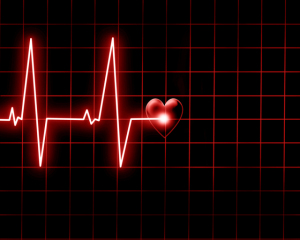Los reveses gordos de la mezcla Droga-Indujeron fallo cardiaco; Epinephrine no
por
Lynn Shapiro, Writer | September 09, 2009

A startling finding that
may impact medical protocols
In the September issue of Anesthesiology, Dr. Guy Weinberg, professor of anesthesiology at the University of Illinois, writes about two critical findings he made on resuscitating patients who suffer from drug-induced cardiac arrest.
First, he confirms that a lipid (fat) mixture containing soybean oil reverses cardiac arrest and irregular heartbeat, which on rare occasions affects patients given local anesthesia, including increasingly popular nerve blocks.
Peripheral nerve block is used for numbing an arm or leg before surgery, Dr. Weinberg tells DOTmed News.
He says while he conducted animal studies, Dr. Meg Rosenblatt of Mount Sinai School of Medicine in New York was first to report in 1998 that more
than a dozen people have been resuscitated by the fat infusion, after suffering local anesthesia toxicity.
Dr. Weinberg made what appears to be a critical finding while studying resuscitation: he discovered that adrenaline (or epinephrine)--the
first-line treatment for patients whose heart has stopped beating--is actually deleterious. Adrenaline not only reverses the beneficial effects of lipids, it impairs resuscitation efforts altogether, he says.
Central Nervous System Drug Overdoses
The lipid emulsion not only helps reverse toxicity from local anesthesia, it has shown impressive results in patients taking anti-psychotic and anti-depressant overdoses, Dr. Weinberg says.
He explains that the lipid infusion appears to pull a fat-soluble drug away from cardiac tissue like a sponge and reduces its harmful effects on
the heart and on the brain.
He has yet to study lipid's effects on other medications. But he says since most drugs are fat soluble, the lipid protocol should work.
Epinephrine: More Harm Than Good
Concerning his discovery that epinephrine or adrenaline is dangerous for patients suffering from cardiac arrest, he says, "usually when someone's heart stops, they get adrenaline to increase blood pressure and heart rate. We had already shown that if you compare adrenaline to lipid, adrenaline is nowhere near as good. Now we have found that epinephrine actually reverses the effect of lipid emulsion."
When asked if there was an alternative to epinephrine, Dr. Weinberg says, "The short answer is not yet. "The former ACLC Guidelines offer the alternative of using a single dose of vasopressin, but we've shown in a previous article that vasopression is far worse."
He adds, "We found that the more epinephrine you give, the worse the outcome, establishing cause and effect. It's okay to put epinephrine in a nerve block in most cases, because you're putting in a tiny dose. But the dose given for cardiac arrest is a very big one."
There are 400,000 out-of-hospital cardiac arrests in the U.S. each year, he says. These patients make it to the hospital alive, "but the portion of
patients that leave the hospital intact is very low," Dr. Weinberg says. "My concern is that some fraction is dying because of the epinephrine."
He will try to replicate these results and if he is successful, he will show them to the American Heart Association immediately, he tells DOTmed.
Source: American Society of Anesthesiologists
